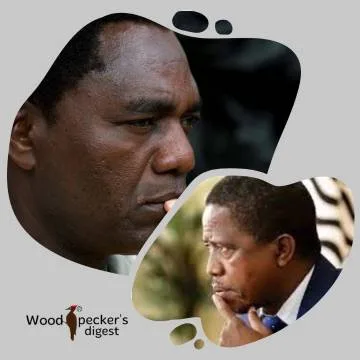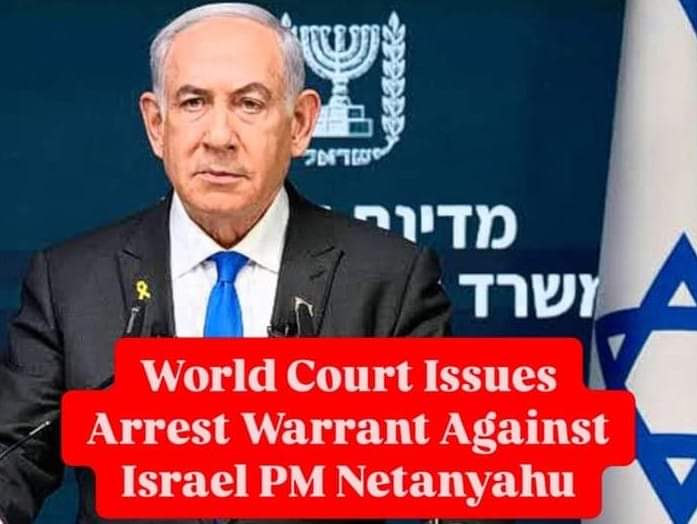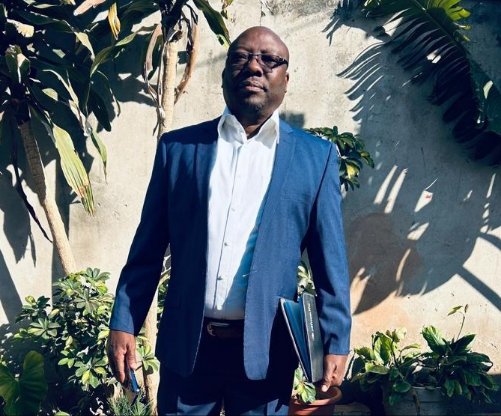
As long as fighting corruption is limited to finding cases against the previous regime, it remains nothing but a window dressing exercise.
By Isaac M. Mwanza
Lusaka, July 16 – ONE of the key promises that Republican President His Excellency Mr. Hakainde Hichilema made before and after forming government was his commitment to fighting corruption and other crimes.
Last week, the corruption fight was a popular topic in the media, generated by discussions among opposition political figures, Government and civil society.
Patriots for Economic Party (PeP) President, Sean Tembo, questioned the basis upon which the Anti Corruption Commission and the courts arrive at a determination and verdict that a person had indeed property that is reasonably suspected to be proceeds of crime.
The prosecution formula of using market values of property, and attaching that value to known earnings of an accused person is not only flawed and laughable but also produces greater injustice.
An argument from those opposed to the law on “proceeds of crime,” is that our law enforcement agencies are engaged in lifestyle audit of those whom government is not uncomfortable with, to determine who gets to be prosecuted.
In simple terms, the work of investigators has been reduced to assessing an individual’s income, assets and investments in order to form suspicion that the property and gains could be a result of some unknown crime. But the catch in that crime is that suspicion ought to be “reasonable.” That, however, is a topic for another day.
Also Read: Institutionalised regionalism and corruption force Auditor General out!
During the week, Socialist Party President, Dr. Fred M’membe, also raised eyebrows in government when he boldly alleged that President Hichilema’s administration is a “looting machine:”
“…we insist that there is absolutely no corruption Mr. Hichilema is truly fighting and that the current fight against corruption is nothing but sheer hypocrisy and vengeance all of which serve to conceal current and ongoing, let alone expanding, corruption,” read, in part, Dr. M’membe’s Facebook statement.
The social media posting attracted a sharp official response from Government with Chief Government Spokesperson, Hon. Chushi Kasanda writing:
“Government encourages and welcomes constructive criticism aimed at improving governance and eliminating corruption. However, we expect such discussions to be based on facts and supported by credible evidence.”
Like Siamese twins with the previous regime which dismissed corruption allegations, the Information Minister adopted the coined “mfwiti, mfwiti” (witch-hunting) style of dismissing these new allegations. She further wrote:
“The claims by Dr. M’membe questioning Government’s sincerity in fighting corruption are without merit and lack substantive evidence (to find “mfwiti” in the village) …We have implemented comprehensive measures to strengthen anti-corruption institutions, enhance transparency in public procurement processes and foster a culture of accountability across all sectors.”
In the belief of Hon. Minister Kasanda, some measures implemented by her government have resulted in the Anti-Corruption Commission (ACC) investigating several cases and securing a number of convictions.
Am aware that Dr. M’membe has comprehensively made a response to this statement, citing a number of cases bordering on alleged corruption. But there are also several other questions the statement by the Ministers raises.
What are those measures, if any, which could have been undertaken that have strengthened the anti-corruption body? Apart from the alleged corruption and abuse of authority that happened under the previous regimes, how many new cases of corruption have been investigated and where conviction has been achieved?
If the Minister had done a little research, she would have discovered that 99 percent of the cases that have been investigated and taken to court are not connected with the alleged corruption that happened under the new dawn administration.
And the reason could be simple: the manner in which LEAs operate has always focused on alleged corruption in previous regimes and, in extremely rare cases, to wrongdoing in a present regime.
Commenting on the recent arrest of the Ministry of Finance Permanent Secretary Mukuli Chikuba, Civil and political rights activist Brebner Changala observed that Mr. Mukuli was quietly arrested without drama associated with other arrests of persons in similar position because he is allegedly close to the powers and on the side of those in government.
Since time immemorial, this has remained the biggest problem in Zambia’s corruption-corruption drive. The Minister may no longer see it because she is now in government but ordinary citizens clearly see this kind of scheme.
There is always a powerful and well-connected group whom officers from these LEAs would investigate but cannot not dare bring to book.
Also Read: The decision to re-engage Vedanta reeks of corruption!
Currently, we have an alleged corruption at the Water Management Authority (WARMA), reported by various media, where people in senior positions forged contracts of employment and services in order to gain illicit enrichment.
It has been alleged that some senior directors at WARMA got additional income, based on the contracts they forged when the WARMA Board had been dissolved by the New Dawn Government.
In another instance, these senior bureaucrats entered into some motor vehicle “agreements” which facilitated payment of monies directly from WARMA into their personal bank accounts.
Some inquiry with these local companies who purportedly supplied vehicles reveal that no such sale was made; there are no financial records to show that necessary taxes were paid to government by these motor vehicle dealers for the alleged “sale” of vehicles in question.
The question is why has there been total silence to deal with this illicit enrichment, fraud, abuse of authority and tax evasion at WARMA. Is it because the persons under investigations have made themselves close to the powers that be and on the side of those in government?
According to media reports, the inertia is attributed to the fact that WARMA allegedly pays allowances to some UPND members, without the knowledge of the President. But how is that possible that a government institution can be paying allowances to cadres?
Under the PF, there are some reports that known cadres were employed at ZESCO and walked away with hefty salaries, which some allege were being shared with some senior party officials without the President knowing.
In the current situation, the question is whether Government is aware that some cadres who hold diplomas are getting employed in government institutions, including WARMA, and are allocated salaries for degree holders. Could it be that they are also sharing these salaries with senior party officials in the UPND?
What does the WARMA Board know about what is going on in the institution they preside over? Is it that the Board is an accomplice to the wrongs or they prefer to have their board allowances in silence?
If there are lessons top bureaucrats in government can learnt from their colleagues who are now being pursued is that these cases which get swept under the carpet usually pop-up another day in the future. These very institutions that look the other side today do magically wake up the following day to bite.
It is the belief of this author that President Hichilema has shown good intentions to fight corruption but his intentions are threatened by the systemic crippling of institutions by his powerful lieutenants.
Former Luapula Province Minister, Derrick Chilundika, was not bluffing when he said he was going to cripple the system. The evading and eventual arrest of officers and highly influential people connected to the Suglite scandal shows that it is indeed possible to cripple the law enforcement system.
As this author joins many in commending President Hichilema for taking a decisive action against his former Minister, some erring law enforcement officers and his own party officials, I urge him to listen more to public sentiments and tell his Ministers to avoid being dismissive when issues are brought up.
Of course, society must treat all suspects as innocent until proven guilty by a competent court of law. These suspects or accused persons deserve to enjoy their rights, including the right to bond or bail and to be fairly tried in court than in the media.
There are many law enforcement officers and civil servants who still have trust in President Hichilema’s leadership to fight corruption and other crimes but these are getting resigned to help because the system is being crippled by powerful politicians and senior bureaucrats within his circles.
You can follow Woodpecker’s Digest on Twitter and Facebook. Remember to add to the comments below to share your thoughts.
©2024 Woodpecker’s Digest.
Putting news into perspective









